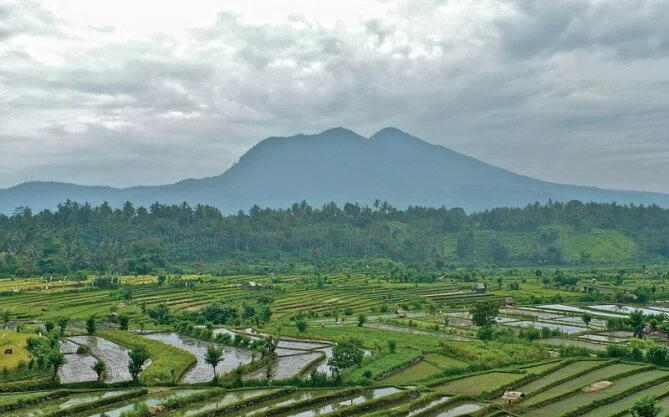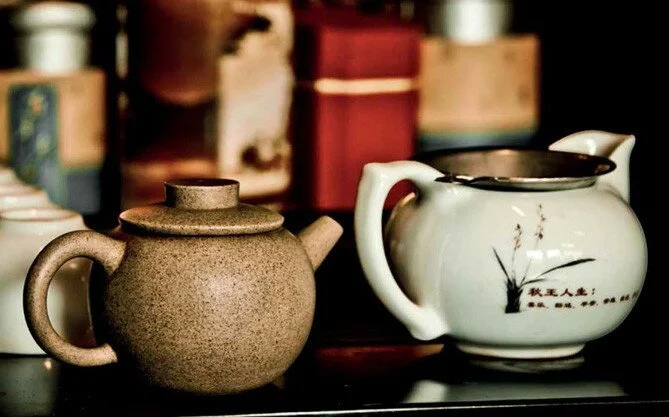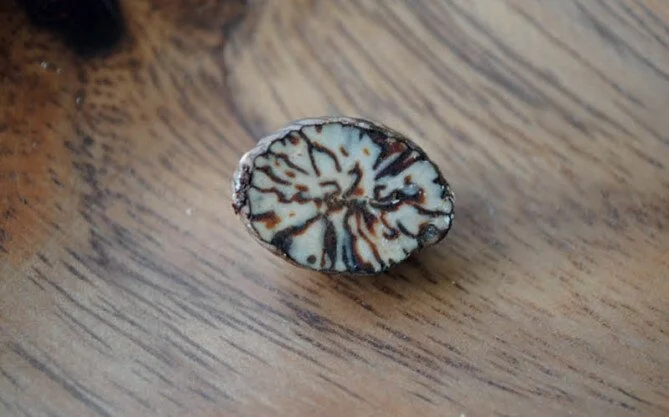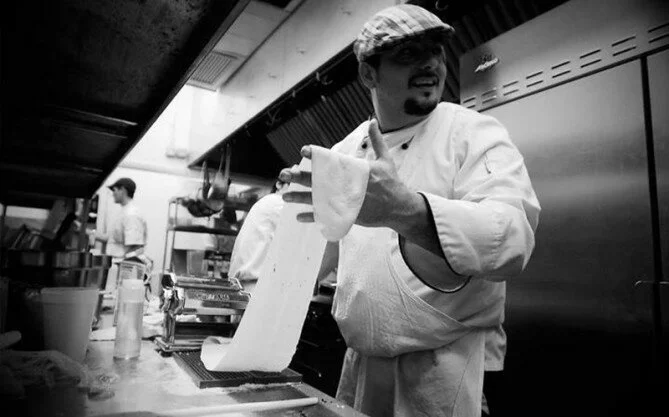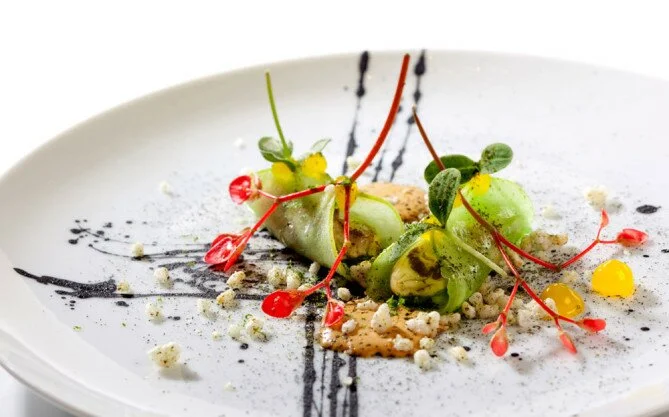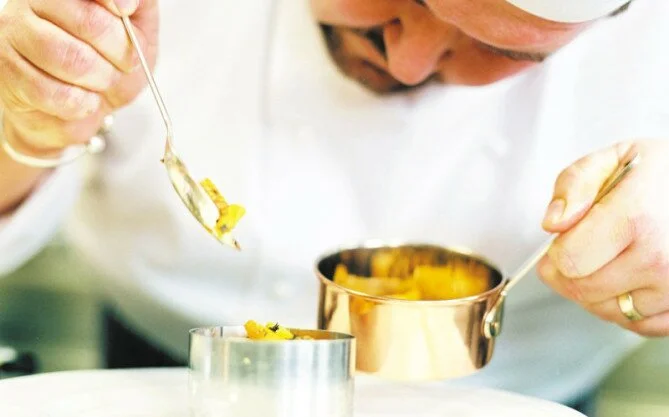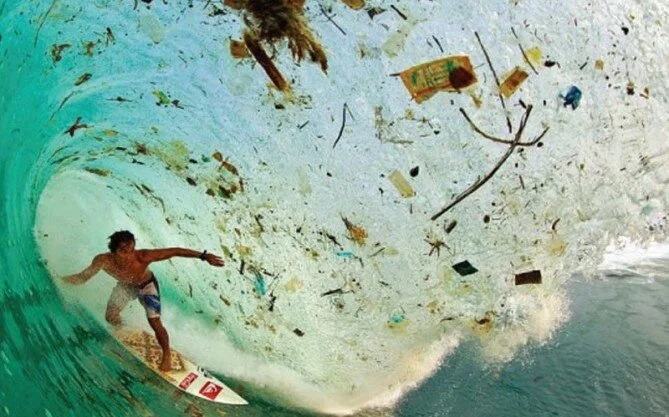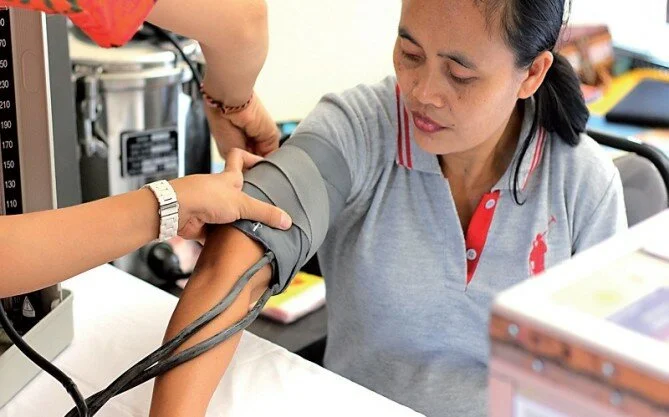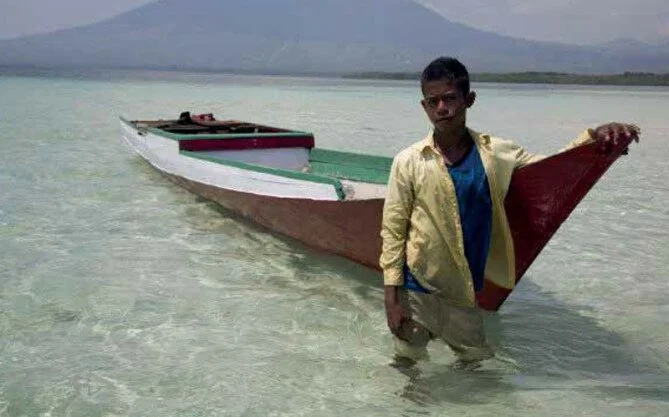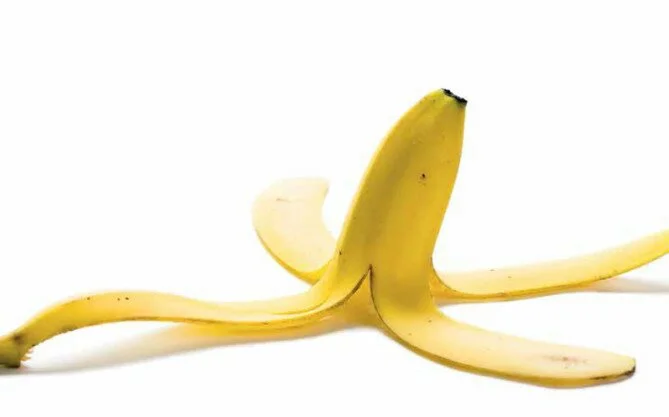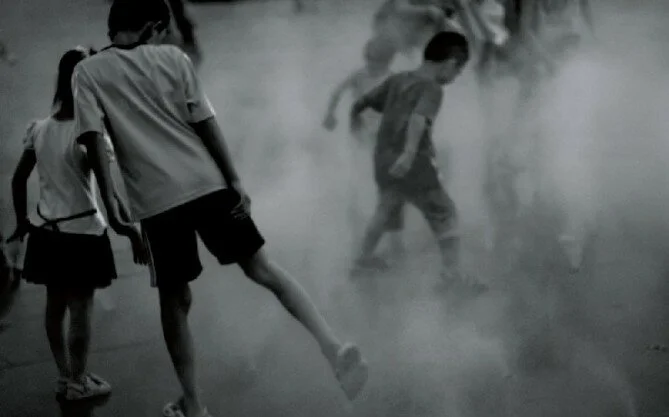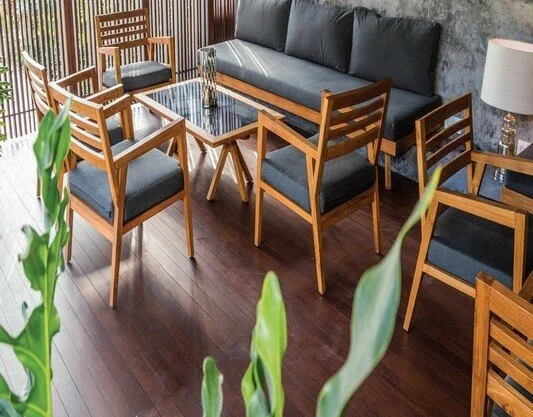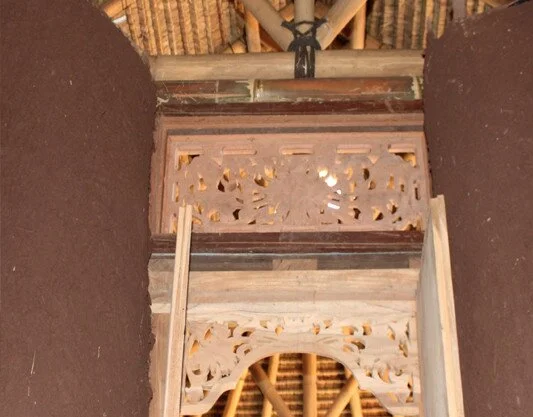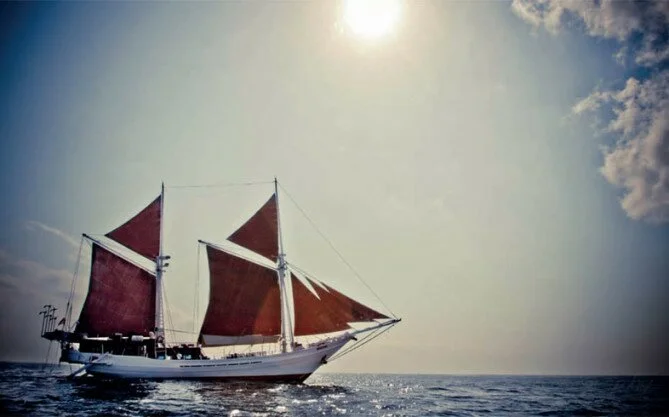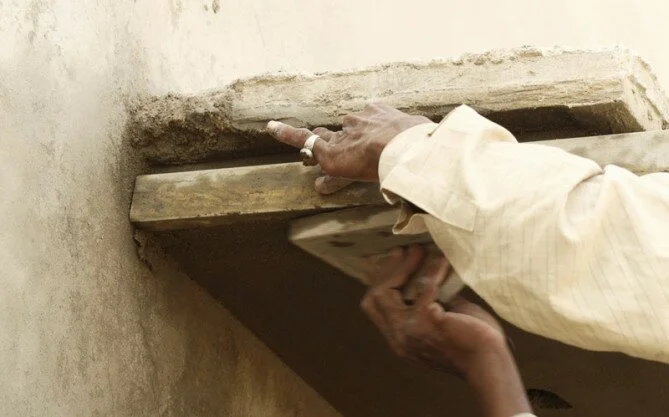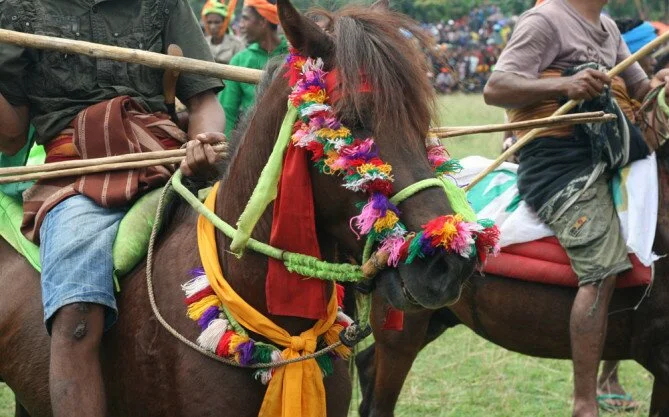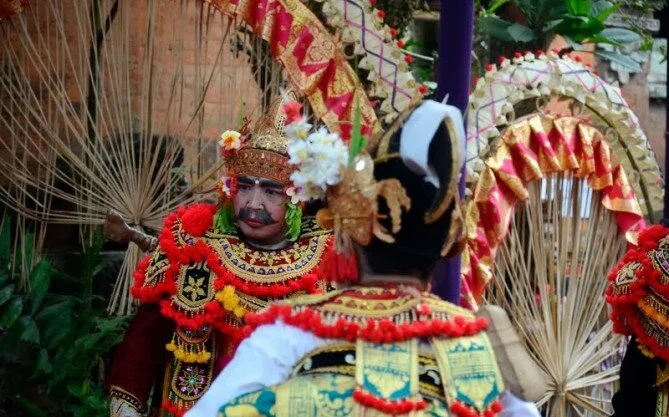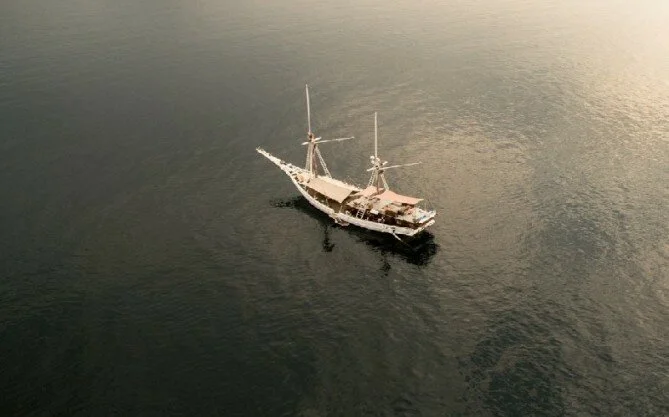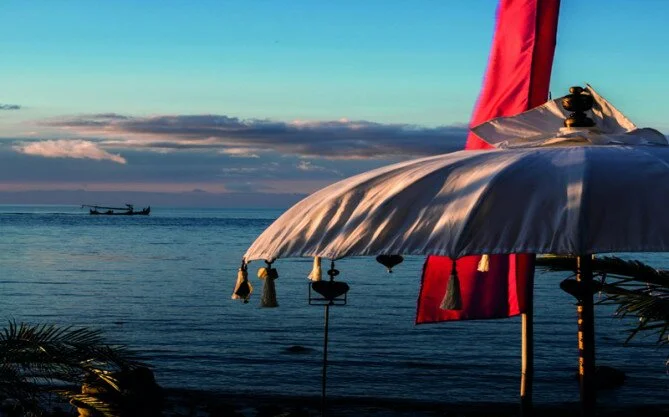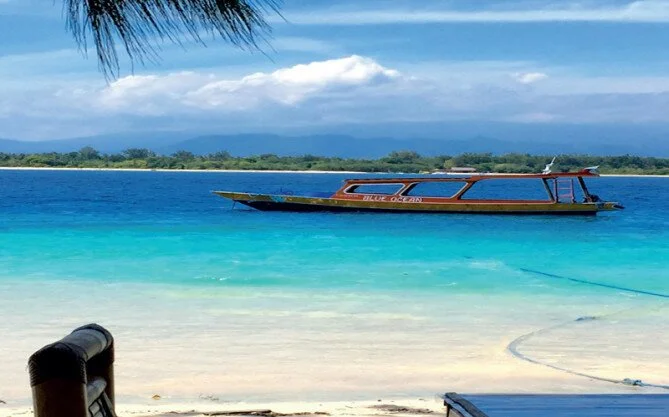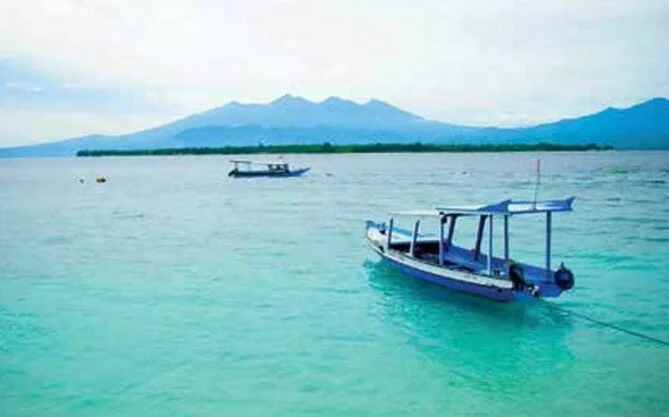- Bye Bye Plastic Bags
- Bye Bye Plastic Bags
- Bye Bye Plastic Bags
- Bye Bye Plastic Bags
- Bye Bye Plastic Bags
- Bye Bye Plastic Bags
Right about now the beaches of Bali are suffering from the effects of the westerly monsoon, resulting in countless tonnes of plastic refuse washing up on the shores of our beautiful island playground, despoiling the sands and risking, once again, scaring off the sacred cash cow tourists to cleaner pastures. Who’s doing something about it? The Bali government? The elders who should know better? No, they aren’t. But two young girls named Melati and Isabel, 13 and 12 respectively, certainly are. Born and raised here, they simply want to save their island so it doesn’t disappear under a mountain of rubbish; quite simply put by Isabel – “to bring back the green of Bali and have our beautiful Bali back again.”
The girls are the founders of Bye Bye Plastic Bags (BBPB), a social initiative driven by children and youngsters to ban the use of plastic bags in Bali – “a short and simple title that covers the message”. Their goal is clear. “In the short term we want everybody to change their attitude and say ‘no’ to plastic bags,” says Melati. “Long term we want to get the government to make laws banning plastic bags from Bali. It’s done in many places; California, Hawaii, Rwanda, some Indian cities … if they can do it, we can do it.”
It all started a year ago with a simple idea and with a little help from their parents, who gave them their first LIKE on Facebook. “We were Inspired by a study at school about significant people like Nelson Mandela, Princess Diana and Martin Luther King, and driving home that day we decided we also wanted to become significant too,” explains Isabel. “We were talking over dinner that night about how young people could make a difference in Bali, the subject of garbage came up and so Bye Bye Plastic Bags was born,’ explains Melati. It has now grown to include a network of 25 (and growing) volunteers, which include like-minded youngsters from many of Bali’s international schools.
Their approach is multi-layered, including education, lobbying, and creating a general awareness among the public of the issues affecting Bali with respect to plastic waste. They have spoken to over 3,500 kids in schools in three different languages, they have a petition doing the rounds online with Avaaz, with the intention to get a million signatures (60,000 to date), and a whole slew of walks, talks, flash mobs, beach clean ups and ‘trash’ fashion shows, to name but a few.
There’s even talk of a documentary, and the girls recently travelled to India where they were invited to give a presentation at an INK seminar – a ‘brain spa’ of ideas – where they received a standing ovation. They have even had the privilege of meeting and discussing their project with Ban Ki-moon, the Director General of the United Nations, and the conservationist Jane Goodall.
Support from local businesses and community groups has been very strong, but it has required a lot of hard work on their part. “We have loads of support now, you cannot imagine,” says Melati. “It all started with us spending a lot of time and effort a lobbying and knocking on doors, sitting in local banjar (village councils) meetings and spending time in Bali’s ‘socialisasi’ program, but it has paid off and now we can say that we have support in every corner.”
“All schools, both local and international, have been receiving our presentations with great enthusiasm,” adds Isabel. “The Green School, where we go, supports us 100%; EcoBali has been a partner in crime from day one; and we were welcomed into Pereranan (a coastal village north of Canggu) because of the support of PGL (Perereran Gumi Lestari) and the warm heart of the kepala desa, the village headman. Our first cash sponsor was the wellness organization, Jari Menari, and in the capital of Denpasar, we have knocked on doors over and over till we got the people of the local and provincial governments on our side.” Putting words into actions they have even adopted a ‘Pilot Village’ in Pererenan, where many shopkeepers and villagers are supporting their mission by using reusable bags made of cotton or paper.
The girls are optimistic about achieving their goals. “It’s are really easy if you think about it, even if we only reduce it by 90%,” reckons Melati. “It’s only a bad habit that needs breaking, and we need to take care of Bali and our future.” Isabel continues: “We are not just targeting shopkeepers but customers too. Next time anyone goes into a supermarket, be it Bintang, Carrefour, or any shop really, just say no to plastic bags. Take your own, or buy one from us – (we have very nice ones, she adds). We are all in this together and it will only work if we all say no.”
“Do not forget, kids have boundless energy and motivation to be behind the change YOU want to see,” drops in Isabel. “We will not stop until the first words you hear at Bali airport are, “Welcome to Bali, do you have any plastic bags to declare”.
www.byebyeplasticbags.com



